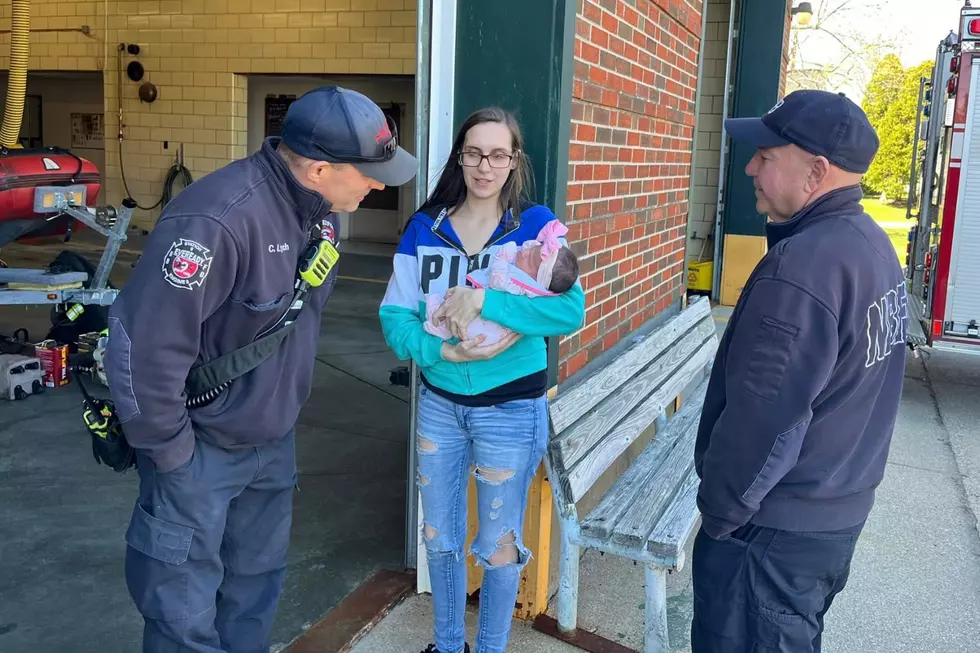
GNB Voc-Tech Admissions Debate Heats Up After Failed School Committee Appointment
Carol Pimintel, New Bedford Mayor Jon Mitchell's nominee to the Greater New Bedford Voc-Tech School Committee, was voted down by the City Council in a 5-4 vote at a Committee on Appointments and Briefings meeting this past Tuesday.
Ward 6 Councilor Ryan Perreira, Ward 2 Councilor Maria Giesta, and Councilors at Large Noami Carney, Linda Morad, and Ian Abreu voted against Pimentel.
Voting in favor of Pimentel was Ward 1 Councilor Brad Markey, Ward 5 Councilor Scott Lima, and Councilors at Large Shane Burgo and Brian Gomes.
Ward 4 Councilor Derek Baptiste was not at the meeting. There is currently special election to fill the Ward 3 seat vacated by former Councilor Hugh Dunn's resignation last December.
The five votes against Pimentel on the council appeared to be primarily based on her intention of working to change the school's admissions policy from the typical "selective screening" process to a full lottery.
Pimentel is a New Bedford Vocational High School alumnus and said she wants to see more equality in the admissions process.
"Prior to the meeting, I told both Mayor Mitchell and Carol Pimentel that I have grave concern about her stance on the admissions policy," Perreira told WBSM.
In the meeting, Perreira told Pimentel that he believes "Voc is working" and he doesn't think they should "mess too much with that."
Carney, who chaired the meeting, got into a heated exchange with Pimentel about her understanding of the admissions policy.
In a recent appearance on WBSM's SouthCoast Tonight, Carney said that her two children went to GNB Voc-Tech, that she sat on the parent advisory board when they were students, and she is concerned with any change in the admissions process.
"I know the culture of Voc," Carney said "It's a very good culture there. I don't want to see it change."
Morad said in the meeting that GNB Voc-Tech's admissions policy "seems to work" and she doesn't see how a lottery would improve the chances of GNB Voc-Tech having a more diverse student body.
Giesta told WBSM that the admissions policy at GNB Voc-Tech has "worked for a long time" but she is open to hearing the other side of the argument.
Giesta said her primary concern is that she didn't believe Pimentel had a firm grasp on the admissions policy and that she had heard from "Voc community" that Pimentel was not a good fit.
Abreu did not comment publicly on GNB Voc-Tech's admission policy or Carol Pimentel's position on it, and declined to comment regarding the matter.
Burgo, Pimentel's most vocal advocate on the council, disagreed with his colleagues that the admissions policy is working. He's argued that the student population is not representative of the sending district's population and that students have essentially been using the school as a college prep course and not taking up trades.
"I’m not sure why my colleagues are so against improving a failing admissions policy and bringing on a new candidate to the school board with first hand experience of how transformative a Voc-Tech education can be for the students of Greater New Bedford," Burgo told WBSM after the meeting.

Pimentel's dismissal brought back to the forefront a years-long battle between Mitchell, the GNB Voc-Tech administration, and the Massachusetts Department of Elementary and Secondary Education regarding the vocational school's admissions criteria and whether or not it is excluding students from marginalized communities from the opportunity to attend.
In his weekly appearance on WBSM's The Tim Weisberg Show, Mitchell slammed the city council for rejecting Pimentel and continued to criticize GNB Voc-Tech's admissions policy.
He said that approximately 30 percent of students in New Bedford Public Schools are English Language Learners. while GNB Voc-Tech's population of ELL students hovers around four percent.
Mitchell, a former Assistant U.S. Attorney, said that those discrepancies indicate a clear violation of civil rights law.
"Ask any civil rights lawyer in America they'll say yeah, that's a problem that's a lawsuit waiting to happen," he said. "Frankly, lawsuit or no lawsuit, it's unfair, and the state's been unwilling to do anything about it."
Mitchell has long been critical of the traditional GNB Voc-Tech "selective screening" admission criteria which gives a score to an applicants attendance record, grades, and disciplinary record.
Mitchell said this criteria excludes students from communities of color, immigrants, students from low-income families, and students with disabilities. He led an effort with 23 other Commonwealth mayors, the Massachusetts Municipal Association, and education advocacy organizations to change the admissions process to a lottery.
GNB Voc-Tech, which also includes students from the towns of Fairhaven and Dartmouth, was identified by DESE Commissioner Jeff Riley in 2019 as one of six vocational school districts in the Commonwealth that have “enrollment discrepancies.”
In 2021, Mitchell's reform efforts proved in part successful when DESE implemented new regulations that prohibit selective admissions criteria that have the effect of disproportionately excluding students who are a member of protected classes, unless it is demonstrated that criteria is "essential to participation" in vocational programs and no alternative criteria is available.
GNB Voc-Tech responded by implementing a new admissions policy in which 500 students were admitted under selective criteria, and the remaining 65 seats for the freshman class of 2026 to a lottery.
In the Fall of 2022, however, the school received a letter from DESE warning their incoming student population "reflects a possible disproportionate exclusion of protected student populations."
In light of this notice from DESE, the GNB Voc-Tech School Committee in its December 13 meeting adopted a hybrid admissions policy where the first 285 students will be entered in a "qualified lottery" if they a) reach a 70 or better in all four academic classes; b) not be "chronically absent" as defined by DESE; and c) not have certain student disciplinary violations.
The remaining 285 students will be admitted through their selected screening process.
When asked about Pimentel's rejection by the council, GNB Voc-Tech Superintendent Director Mike Watson told WBSM he would rather "leave politics to the politicians" and "let the data drive the conversation."
Watson said last year's admission policy was successful in adding more students with special needs and they are hoping to build on that with the new policy.
He also said one of the reasons ELL students are admitted in such few numbers is because they are applying to GNB Voc-Tech at half the rate of the rest of the students.
"A year ago we knew that 27 percent of the region's EL students even applied to become students at Greater New Bedford Voc-Tech," Watson said. "That compares to roughly, ballpark, 50 percent of white students, African-American students, economically disadvantaged students and the like. So we're seeing nearly one in two apply in almost every single demographic except for EL students."
Watson took over as Superintendent Director around 18 months ago. During that time, the school hired its first Director of Equity, Diversity, Inclusion, and Family Engagement, and hired its first of two family engagement specialists in order to grow its outreach to the EL students of the region and explain to them the benefits of a vocational education.
Watson said they won't know whether or not the school's admission standards are foreclosing ELL students from the opportunity to attend GNB Voc-Tech until they improve their rate of application .
"If those numbers were at 50 percent and (ELL) students were getting entry at the same level, then I think we're having the conversation that others want us to have about whether or not admissions criteria is a factor to that," he said.
Top Stories for the First Week of 2023
More From WFHN-FM/FUN 107









